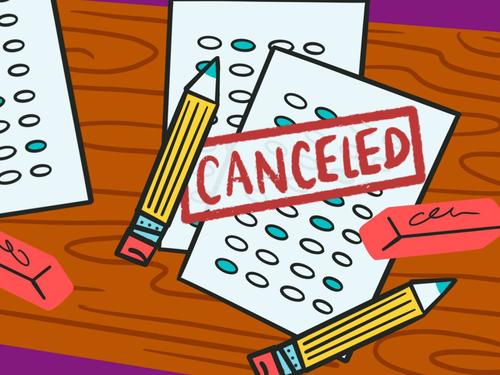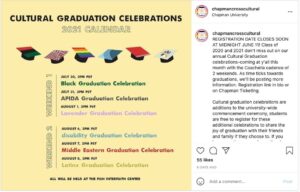Random selection is not generally an approach that most people opt for in the selection of doctors or even restaurants or a movie. However, it appears to be the new model for some in higher education. Former Barnard College mathematics professor Cathy O’Neil has written a column calling for “random selection” of all college graduates to guarantee racial diversity. It is ever so simple:
“Never mind optional standardized tests. If you show interest, your name goes in a big hat.”
She is not the only one arguing for blind or random admissions.
Recently, University of California President Janet Napolitano announced that the entire system will no longer base admissions on standardized tests — joining a “test-blind” admissions movement nationally. Others have denounced standardized testing as vehicles for white supremacy. Education officials like Alison Collins, vice president of the San Francisco Board of Education, have declared meritocracy itself to be racist. There is a growing criticism that the problem with higher education is that it relies on merit rather than status as the driving criteria for admissions.
O’Neil and others are arguing not just for blind but actually random selection to achieve true diversity. O’Neil argues that it would also “take the pressure off students to conform to the prevailing definition of the ideal candidate” and allow them “to be kids again, smoking pot and getting laid in between reading Dostoyevsky and writing bad poetry.”
Others have called for purely random selection. In 2019, the liberal New America foundation argued that highly selective colleges and universities should admit students by lottery. Amy Laitinen, Claire McCann, and Rachel Fishman argued that not only should admissions be random but schools “would lose all eligibility not only to Title IV aid but also to federal research dollars.” They argued that this “This would do away with admissions preferences that overwhelmingly favor white and wealthy applicants, including for athletes and legacies.”
In her column, O’Neil admits that there is a “downside” like the fact that “applications to the most selective colleges would soar, causing acceptance rates to plunge and leaving the ‘strongest’ candidates with little chance of getting into their chosen schools.” However, she treats the downside of eliminating the value of actually doing well in high school and tests as just a question of privilege:
“The kids who struggled to get perfect grades, who spent their high school years getting really good at obscure yet in-demand sports, the legacies and the offspring of big donors, would lose their advantages.”
In an earlier column, I noted that the move by California to get rid of standardized tests occurred after California voters rejected an expensive campaign to reintroduce affirmative action in college admissions. The Supreme Court is also considering whether to take the case of Students for Fair Admissions v. President and Fellows of Harvard College. The Court this week asked the Biden Administration to take a position in the case involving allegations that Harvard has discriminated against Asian applicants. Litigants cite a study finding that Asian Americans needed SAT scores that were about 140 points higher than white students; the gap with admitted African American and Hispanic students is even greater.
The case could allow for clarity on the issue after years of conflicting 5-4 decisions that have ruled both for and against such race criteria admissions. There is a concern among universities that the Court could be moving toward a clear decision against the use of race as a criterion. Even the author of the 2003 majority opinion in Grutter v. Bollinger, Associate Justice Sandra Day O’Connor, said she expected “that 25 years from now, the use of racial preferences will no longer be necessary to further the interest approved today.” That was roughly 25 years ago.
“In the Harvard case, the scores are particularly important because the litigants allege that subjective factors were systemically used to disfavor them on issues such as likability and personality. While the lower courts ruled for Harvard, the trial judge did note that there may have been bias in favor of minority admissions and encouraged Harvard to deal with such “implicit bias” while monitoring ‘any significant race-related statistical disparities in the rating process.’ But what if there are no ‘statistical disparities’ because there are no objective statistics?”
O’Neil argues for blind and random selection precisely because it would prevent such court review.
“Colleges wouldn’t have to worry about fighting claims of racial discrimination in the Supreme Court because by construction the admissions process would be nondiscriminatory. No more “soft” criteria. No more biased tests. Just blind chance.”
Blind selection is the final default position for many schools. Universities have spent decades working around court decisions limiting the reliance on race as an admissions criterion. Many still refuse to disclose the full data on scores and grades for admitted students. If faced with a new decision further limiting (or entirely eliminating) race as a criterion, blind selection would effectively eliminate any basis for judicial review.
It would also destroy any value for the students to work to achieve greater achievement in math, science, and other subjects. O’Neil is right. They would be free to spend their time “smoking pot and getting laid in between reading Dostoyevsky and writing bad poetry.” The new model for admissions would range from Hunter Thompson to Hunter Biden.
The push for blind or random admissions is the ultimate sign of the decadence of society. What O’Neil is describing is a system designed for the intellectual dilettante. Of course, countries like China are moving to dominate the world economy with kids who are not focusing on good sex and bad poetry. Higher education has long been based on intellectual achievement and discovery. Admission to higher ranked schools has been a key motivating factor for millions of students, including the children of many first generation Americans. Their achievement has translated into national advancement in science and the economy. It has served to bring greater opportunities and growth for all Americans.
Now, recognition of such achievement is rejected by writers like O’Neil as “perpetuating the privileges of wealth” and preventing true racial diversity in our schools. So we will eliminate merit-based admissions entirely and reduce higher education to a lottery system based on pure luck.
And, when the world discovers that bad poetry holds the key to the new global economy, we will once again rise as a world power.



